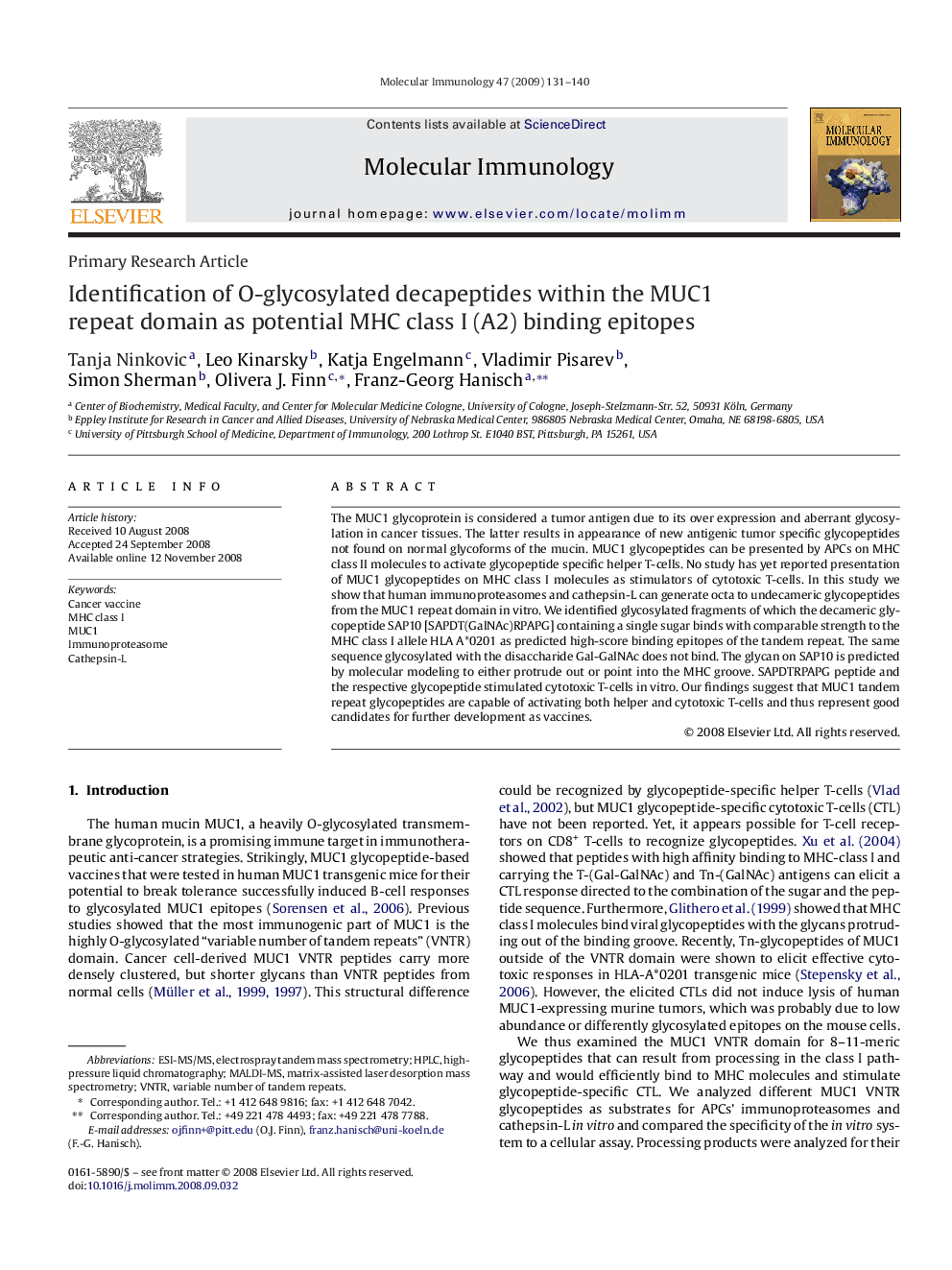| Article ID | Journal | Published Year | Pages | File Type |
|---|---|---|---|---|
| 2831378 | Molecular Immunology | 2009 | 10 Pages |
Abstract
The MUC1 glycoprotein is considered a tumor antigen due to its over expression and aberrant glycosylation in cancer tissues. The latter results in appearance of new antigenic tumor specific glycopeptides not found on normal glycoforms of the mucin. MUC1 glycopeptides can be presented by APCs on MHC class II molecules to activate glycopeptide specific helper T-cells. No study has yet reported presentation of MUC1 glycopeptides on MHC class I molecules as stimulators of cytotoxic T-cells. In this study we show that human immunoproteasomes and cathepsin-L can generate octa to undecameric glycopeptides from the MUC1 repeat domain in vitro. We identified glycosylated fragments of which the decameric glycopeptide SAP10 [SAPDT(GalNAc)RPAPG] containing a single sugar binds with comparable strength to the MHC class I allele HLA A*0201 as predicted high-score binding epitopes of the tandem repeat. The same sequence glycosylated with the disaccharide Gal-GalNAc does not bind. The glycan on SAP10 is predicted by molecular modeling to either protrude out or point into the MHC groove. SAPDTRPAPG peptide and the respective glycopeptide stimulated cytotoxic T-cells in vitro. Our findings suggest that MUC1 tandem repeat glycopeptides are capable of activating both helper and cytotoxic T-cells and thus represent good candidates for further development as vaccines.
Keywords
Related Topics
Life Sciences
Biochemistry, Genetics and Molecular Biology
Molecular Biology
Authors
Tanja Ninkovic, Leo Kinarsky, Katja Engelmann, Vladimir Pisarev, Simon Sherman, Olivera J. Finn, Franz-Georg Hanisch,
